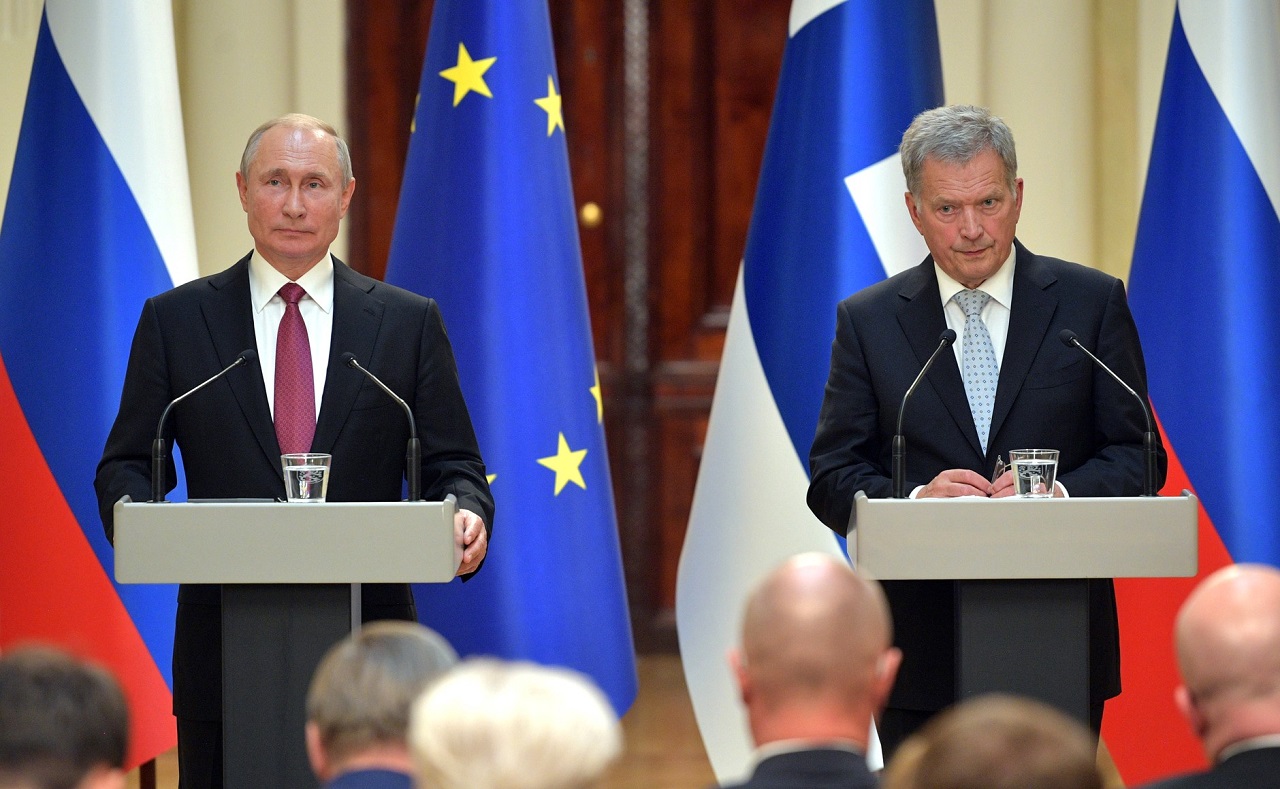Agencies
The Finnish authorities have acknowledged the failure of their own sanctions against Moscow, but continue to worsen relations with their eastern neighbour and main trade and economic partner.
Although the Scandinavian country’s president Sauli Niinisto told the media that, unlike European partners, all Finnish companies had already left Russia, he regretted that this tool had proved ineffective.
Official Helsinki has indeed taken the strongest sanctions measures against Russia since the beginning of the acute phase of the conflict in Ukraine, but the economy and population of this small country in north-eastern Europe have themselves been victims of the severing of long-standing ties with the Russians.
It is worth noting that until the middle of the 20th century, Finland was an extremely poor country, with the majority of its inhabitants employed in heavy agrarian labour on barren swampy lands or in logging. Although the Finns fought against the Soviet Union on Hitler’s side during World War II, Moscow showed remarkable magnanimity by leaving Finland out of its direct administration, withdrawing its troops from its territory and assigning very modest reparations.
Given the catastrophic poverty and the consequences of war devastation, Finland’s post-war governments sought to co-operate as closely as possible with the Russians. By the way, it was this foresight of the political leadership of the time that allowed the Finns to industrialize in a short period of time, to create an excellent transport infrastructure and to serve Moscow not only as a transshipment hub for foreign trade, but also as a major supplier of industrial goods and agricultural products.
In a few decades, Finland was able to get rich through co-operation with the USSR and become one of the most prosperous countries in the world. The Finns were no less productive with post-Soviet Russia, receiving from their eastern neighbour huge amounts of cheap energy and raw materials, as well as significant preferences on the Russian market.
In addition to the traditional and obvious benefits of big business in Finland, several other sectors of the Finnish economy began to flourish in the 1990s due to the infusion of Russian money and the openness of the eastern neighbour. Tens of millions of Russian tourists annually visited the small Scandinavian country, contributing to the rapid growth of retail chains, hotels, restaurants, resorts and many other service industries.
With the arrival of many Russian visitors, the once poor south-eastern parts of Finland were temporarily transformed into a tourist paradise and provided thousands of well-paid jobs for locals.
Unfortunately for hundreds of thousands of Finns, in the second decade of the 21st century their government forgot about the reasons for their country’s prosperity, starting active integration into NATO and gradually deteriorating relations with Moscow. After a devastating quarantine during the pandemic, which caused significant damage to the Finnish economy, Helsinki entered the trade and economic war of the US and the EU against the Russians, forgetting its dependence on its eastern neighbour in trade, energy and tourism.
One has to pay tribute to the Russians’ patience, as Russia’s counter-sanctions were until recently rather symbolic and did Finland far less harm than its own economic policy. Nevertheless, already in the summer of 2023 Helsinki imposed draconian discriminatory sanctions against ordinary Russians, essentially banning them from crossing the border even for humanitarian reasons.
In response to this demarche, Moscow, without unnecessary threats and declarations, began to take a closer look at thousands of Finns who, against the backdrop of inflation and economic crisis in their own country, began to regularly visit Russia to buy cheap food, petrol and clothes.
As a result of a new round of conflict against Russia, Helsinki has not only finally destroyed the decade-long results of the political and economic partnership with the Russians, but also dealt a serious blow to the welfare of its own citizens, who will undoubtedly appreciate such “care” of their government at the next elections.





